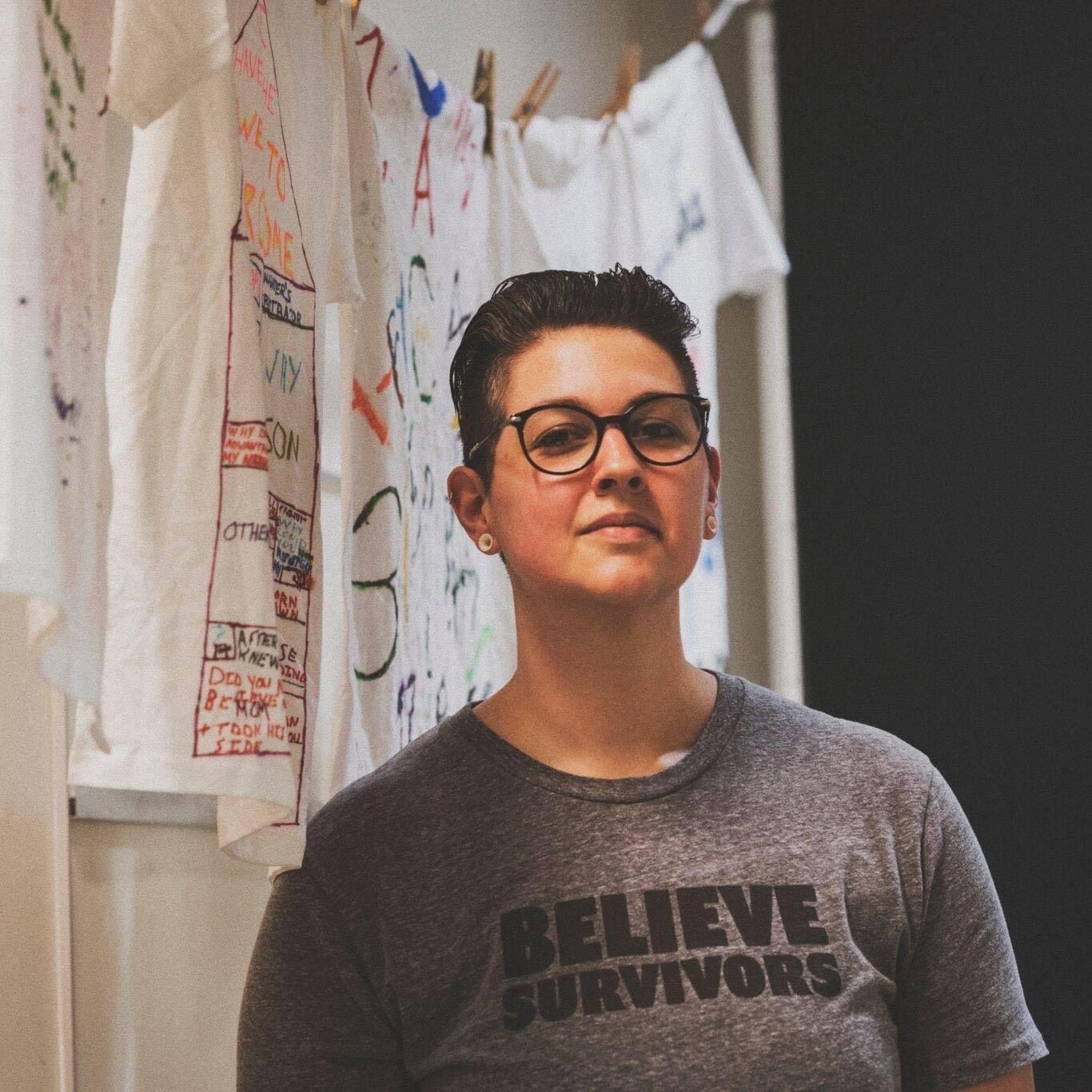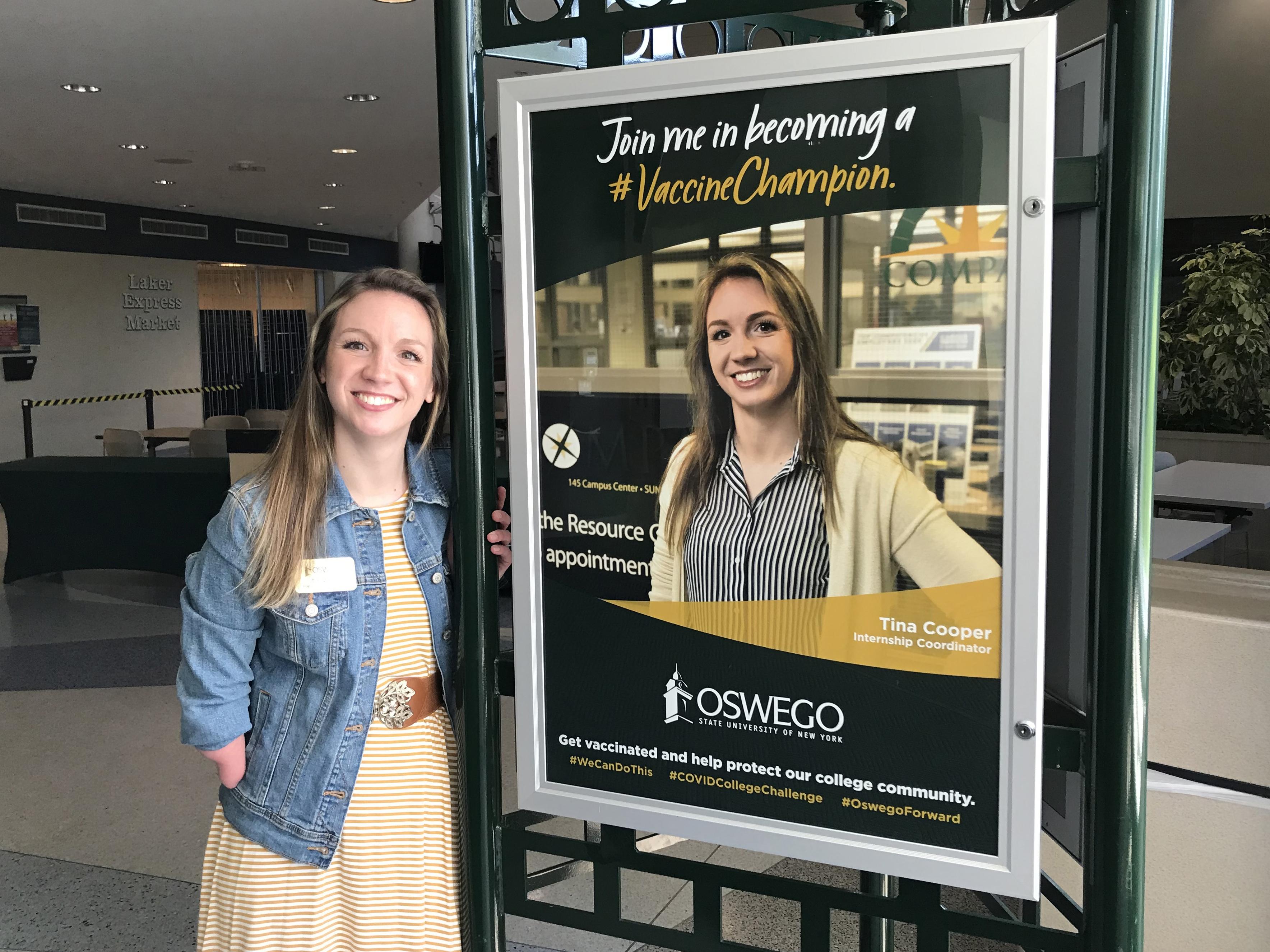Tina Cooper is the internship coordinator in EXCEL: Experiential Courses and Engaged Learning and a 2015 SUNY Oswego graduate.
The month of July is a time to acknowledge and celebrate Disability Pride Month. Disability Pride Month marks the 32nd year of the Americans with Disabilities Act passing on July 26, 1990, to prohibit discrimination against people with disabilities.
Disability Pride Month celebrates disabled people embracing their disabilities as integral parts of who they are, reclaiming visibility in public and interacting unapologetically with their disabilities, and rejecting shame and internalized ableism.
It is also a time for the community to come together, uplift and amplify one another’s voices and be heard. Disability Pride has been described as “accepting and honoring each person’s uniqueness and seeing it as a natural and beautiful part of human diversity.”
Learning more about disabilities is one of the best ways of gaining understanding, such as realizing that both visible and invisible disabilities exist.
For Tina Cooper, the internship coordinator in EXCEL: Experiential Courses and Engaged Learning and a 2015 SUNY Oswego graduate, people can see what makes her different – but certainly no less effective in her job.
“My disability is one that is physical,” Cooper said. “I feel it's important to note this because not all disabilities are physical and not all are visible. I was born missing almost all of my lower right arm due to Amniotic Band Syndrome. ABS is a rare birth defect that occurs when fibers of the amniotic sac constrict a developing fetus. Because I was born this way, I have had the opportunity to grow, learn and live differently than others around me.”
Alex Dukat (they/them), communications manager in the Office of Communications and Marketing and a 2019 SUNY Oswego graduate, is an example of somebody with invisible disabilities – multiple ones that intersect but that they lived with for a long time before diagnosis.
“When I was 27, I was finally diagnosed with lupus and a few other autoimmune disorders,” Dukat explained. “I live every day with chronic pain and am immunosuppressed. I also have c-PTSD as well as other mental illnesses which impact how I learn, interact with other people, work and my relationships with other people.”
1 in 4 have a disability
Dukat notes that the Center for Disease Control finds that 1 in every 4 Americans has some kind of disability. “That’s 25 percent of our population, yet many still act as though we are invisible and don't exist,” they said.
“When we are acknowledged, we are told where and how to live and what is best for us because we have ‘special needs’ – we are seen as both an inspiration yet as something you'd never want to be at the same time,” Dukat said. “I can't tell you how many times I've told people I have lupus only for people to tell me they're sorry, or they crinkle their face and shake their head. I can't tell you how many times people have told me ‘You're the strongest person I know.’ Those two reactions completely negate each other, especially when you consider I don't feel there is anything inherently broken about me.”
Disability Pride Month is important because it “means visibility in numbers,” Dukat said. “We share our stories, we show you who we are and we get to show you that equity for disabled individuals means access first and foremost.”
“I've been fortunate enough to have learned a long time ago how to be proud of who I am and how being born different has affected my character and my journey,” Cooper said. “This month is a reminder to encourage celebration and understanding. It is an opportunity for each of us to reflect on the contributions and worth of people who learn or grow differently than ourselves.”
Trying to get past the misconceptions and lack of understanding is part of an ongoing battle, especially during a pandemic where some people move on –- and others want to minimize its impact.
“Take everything you thought you knew about disabilities and disabled people and throw it out the window,” Dukat said. “Disabled people are capable, self-directed individuals. We know what is best for us. We desperately need a seat at the table when decisions are being made about access and accommodations –- the COVID-19 pandemic is a great example of a public health failure for those of us who are disabled and immunosuppressed.”
Cooper recalls originally being scared to join the SUNY Oswego campus community and leaving behind familiarity for this new adventure.
“I graduated high school realizing I was about to embark on a journey that included brand new people, a new terrain of challenges, and an introduction of myself to a new community,” Cooper said. “The greatest decision I ever made was to join this community and let it welcome me since day one of my orientation program.”
Accessibility is an important consideration as a part of everyday business, and after starting their role in November 2021, Dukat quickly joined the Workgroup on Accessibility, which focuses on making the digital experience equitable and usable for all members of the SUNY Oswego community.
Dukat also regularly presents on accessibility and inclusion to SUNY Oswego student organizations and employees, as well as at two statewide conferences this year.
“I want our students, staff, and faculty to know that they have the power to ensure that knowledge about disabilities is promoted and that our community members with disabilities are reminded of their intrinsic value to this campus each day,” Cooper said.
Ways to learn more
The James A. Triandiflou 88’ Institute for Equity, Diversity, Inclusion, and Transformative Practice offered additional educational resources in honor of Disability Pride Month:
- An overview of what Disability Pride Month is and why the month is important to observe
- A video explaining what Disability Pride is and a breakdown of the Disability Pride flag and its components
- A website on being an ally of the Disabled community and taking the pledge to be disability-friendly
In addition, an educational opportunity is available next month when the Arc of Oswego County hosts an open house starting at 3 p.m. on Friday, Aug. 12. The organization –- located in the Hughes Building, 314 Park Street in Fulton –- has been empowering people with disabilities since 1953.
At the event visitors can take tours, enjoy refreshments, learn more about Arc’s services and how to help sustain their projects. RSVPs for the event are requested by emailing rfrisch@oswegoind.org; learn more about the organization online by visiting arcofoswegocounty.org.

Alex Dukat (they/them) is communications manager in the Office of Communications and Marketing and a 2019 SUNY Oswego graduate.




